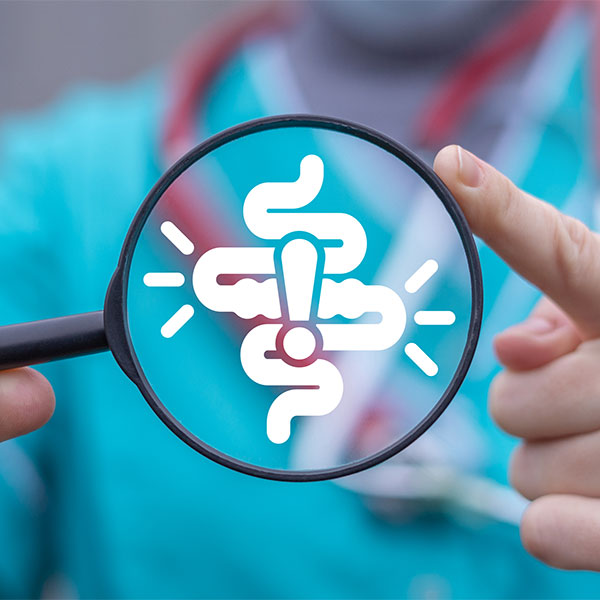Colon cancer
Colorectal cancer is the most common type of cancer worldwide, following breast and lung cancer, and is the second most deadly.
Every year there are around 2 million new cases worldwide, with more than 900,000 deaths. Colorectal cancer occurs with relatively higher incidence in men and has an increasing trend in the western world, with adenocarcinoma being the most common type
According to the World Health Organization, over the next 15 years, new cases per year are expected to reach 3.5 million and deaths around 1.5 million (an increase of more than 70%).
It is noteworthy that colorectal cancer is also on the rise in younger people (<50 years), with an increase of 3% of cases, and is often diagnosed at an advanced stage.


Colon cancer
Colorectal cancer is the most common type of cancer worldwide, following breast and lung cancer, and is the second most deadly.
Every year there are around 2 million new cases worldwide, with more than 900,000 deaths. Colorectal cancer occurs with relatively higher incidence in men and has an increasing trend in the western world, with adenocarcinoma being the most common type
According to the World Health Organization, over the next 15 years, new cases per year are expected to reach 3.5 million and deaths around 1.5 million (an increase of more than 70%).
It is noteworthy that colorectal cancer is also on the rise in younger people (<50 years), with an increase of 3% of cases, and is often diagnosed at an advanced stage.

The importance of prevention and early diagnosis
Prevention and early diagnosis are the most important things in the treatment of colorectal cancer.
Five-year survival in patients with colorectal cancer varies depending on the stage:
– 90% in stages I & II (no lymph node infiltration)
– 70% in stage III (with lymph node infiltration)
– 15% in stage IV (metastatic)
Furthermore, due to people’s non-compliance with screening, the majority of cases (>60%) are diagnosed at a fairly advanced stage (stages III, IV), where patient management is difficult, and chemotherapy is required.
In breast cancer, where the majority of women undergo annual screening through imaging examinations, a large percentage (>65%) are diagnosed at an early stage (I & II, without lymph node infiltration) with a 5-year survival rate close to 100%.
In contrast, in colorectal cancer, screening due to non-compliance is in the single digits and diagnosis is usually made at stage III or metastatic stage, where the chances of cure and survival are significantly reduced.

Symptoms of colorectal cancer
Usually, a patient with colorectal cancer will visit their gastroenterologist for a colonoscopy with a delay of 6 months to a year from the initial onset of the first symptoms. This leads to late diagnosis of the disease and unfortunately in many cases to an advanced stage.
For this reason, frequent screenings should be done.
The symptoms to be aware of, either overall or individually, include: bleeding from the anus (blood in the stool), changes in the stool (frequent diarrhea or constipation, different quality), quite severe abdominal discomfort, weakness or tiredness and/or sudden weight loss.


Symptoms of colorectal cancer
Usually, a patient with colorectal cancer will visit their gastroenterologist for a colonoscopy with a delay of 6 months to a year from the initial onset of the first symptoms. This leads to late diagnosis of the disease and unfortunately in many cases to an advanced stage.
For this reason, frequent screenings should be done.
The symptoms to be aware of, either overall or individually, include: bleeding from the anus (blood in the stool), changes in the stool (frequent diarrhea or constipation, different quality), quite severe abdominal discomfort, weakness or tiredness and/or sudden weight loss.

Causes that cause cancer in the colon
Often the causes of colon cancer are not entirely clear. The most common causes are:




